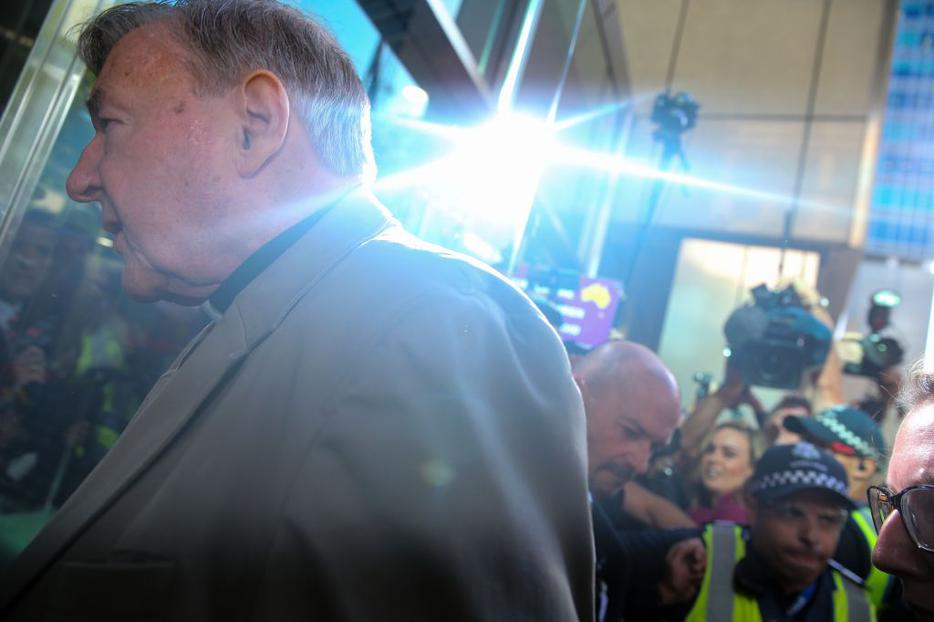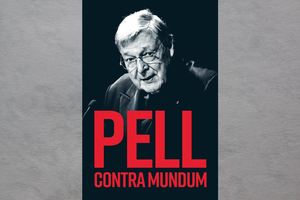Cardinal Pell to Be Sentenced: A Case of Justice or Corruption?
COMMENTARY: Commentators across the political and ecclesiastical spectrum have found the prosecution of Cardinal Pell to be an obvious injustice.

As Cardinal George Pell awaits sentencing Wednesday for his convictions of the sexual abuse of minors, one can expect that the official Vatican reaction will be to express “maximum respect” for the Australian criminal-justice system while awaiting the outcome of Cardinal Pell’s appeal.
In regards to Cardinal Pell’s case, the Vatican has repeatedly expressed its “maximum respect” for Australian authorities. Why?
Commentators across the political and ecclesiastical spectrum — including this writer — have found the prosecution of Cardinal Pell to be an obvious injustice.
It has long been known, and now can be publicly reported, that the police in Victoria (Cardinal Pell’s home state in Australia) were out to get Cardinal Pell long before there were any complaints about him. They had set up a task force, “Operation Tethering,” in 2013 to search for charges against Cardinal Pell before any such complaints had ever been made to police.
They took out advertisements soliciting stories of sexual abuse at Melbourne’s St. Patrick’s Cathedral before any such complaints had been received. The Victoria police had their man and just needed to produce a victim and a complaint.
But, you might say, the Vatican’s “maximum respect” line is just the sort of thing everyone says. Not so.
From the March 2 edition of The Economist: “Australia’s dodgy cops,” “Criminal Injustice,” “Police corruption in Australia.” Yes, that describes the police department that prosecuted the case against Cardinal Pell.
“Police in the state of Victoria spent millions of dollars trying to keep their arrangement with Informer 3838 a secret,” explains The Economist. “[Nicola Gobbo] was a young criminal barrister who snitched on some of Australia’s most notorious drug lords while she was representing them in the 1990s and 2000s. [She] claims her action helped convict nearly 400 criminals. She also violated their right to confidentiality and, possibly, their chances of a fair trial. Dozens of gangsters could walk free now the affair has become public.”
This is not just a newspaper in high dudgeon over civil rights.
A Victoria High Court ruled that the Victoria police had “corrupted” prosecutions and “debased fundamental principles of the criminal-justice system.” The premier (governor) of the state of Victoria has announced a royal commission, with powers of subpoena, to investigate the appearance of corruption at the highest levels of the Victoria police and its subsequent efforts to cover it up.
With the public revelations about Gobbo, Victoria police have revealed that they had six other informants from criminal-defense firms, going back to 1995 and as recently as 2016.
Meanwhile, Victoria police officials “have also been accused of falsifying a witness statement and of battering innocents,” The Economist reports.
So it is a fact — a fact so disturbing that it has led to the establishment of a royal commission, the highest level of public investigatory commission in a commonwealth country — that the Victoria police, once convinced of the guilt of subject, are willing to breach the most fundamental legal guarantees, including attorney-client privilege.
If senior officials in the Victoria police knew, it means that the police service arrogated to itself the right to determine who was guilty before trial and then to employ whatever means were necessary to obtain the conviction, including the highest-order corruptions of the criminal-justice system.
Sound familiar? Would anyone with passing familiarity with the apparently low ethical standards of the Victoria police be surprised if it turned out that, in their efforts to bring down Cardinal Pell, more than a few dubious practices were employed?
Remember, the corruption of the criminal-justice system by the Victoria police had been going on for more than 20 years before it was revealed in December 2018. Imagine what a royal commission into the Cardinal Pell prosecution would bring to light.
The Victoria police is not the only police department to corrupt criminal justice — examples are not lacking in Canada and the United States. But they are the relevant agency regarding Cardinal Pell, and their credibility in high-profile cases lies in tatters.
The Victoria police have not earned “maximum respect” in Victoria. Why do they enjoy it at the Vatican?
Father Raymond J. de Souza is the editor in chief of Convivium magazine.

















